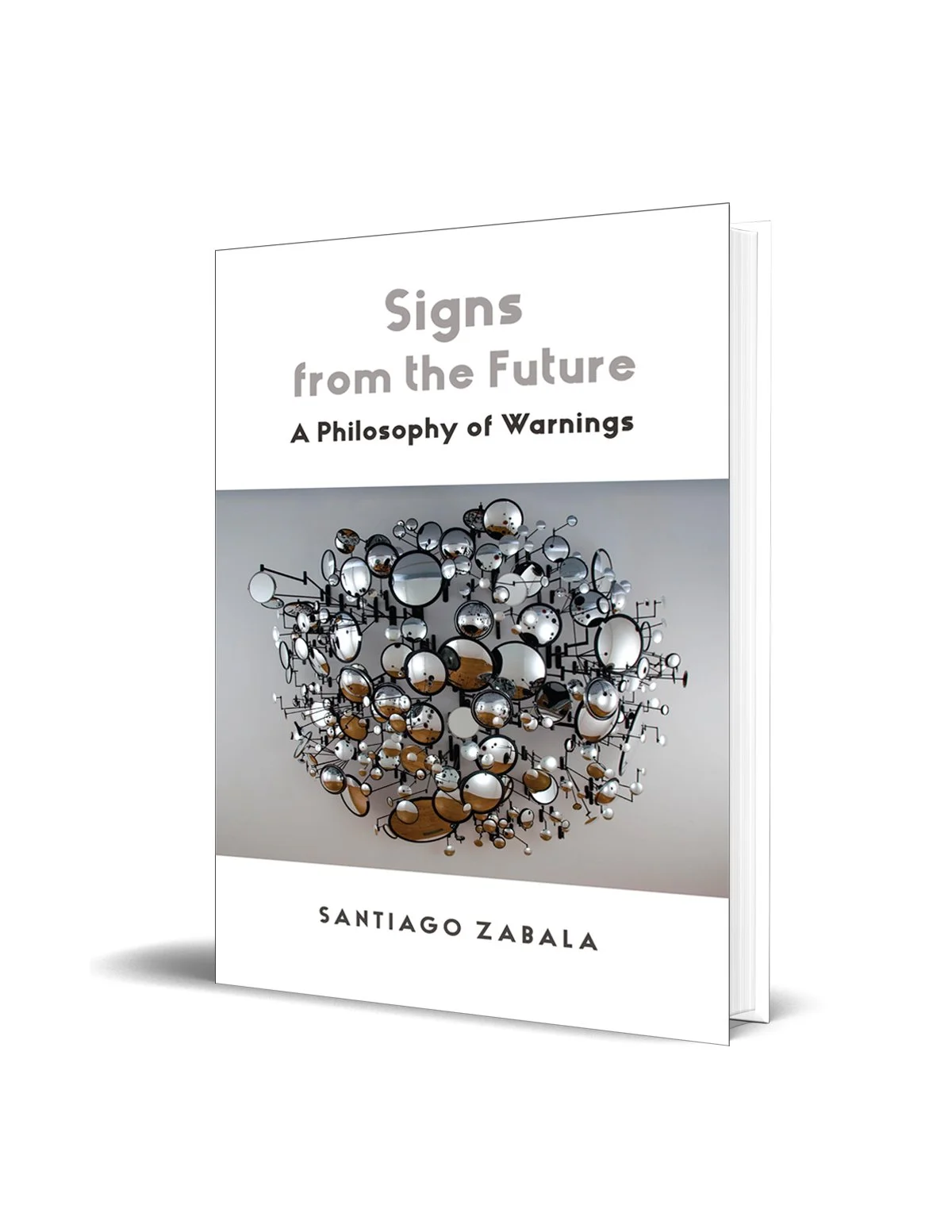Santiago Zabala achieves in Signs from the Future. A Philosophy of Warnings what only
the best thinkers occasionally do: he effortlessly unites the most pressing concerns of our moments (global warming, pandemic, social crises...) with the reflection of "eternal" questions (reality oriented towards future, the nature of thinking). This is why his book is interesting in the most basic sense of the term of "inter-esse": throwing us into the heart of being. It is a book for everybody who has the courage to think today - SLAVOJ ŽIŽEK, author of Zero, Against
Progress and Too Late to Awaken.
In Signs from the Future, Santiago Zabala undertakes a profoundly original endeavor: to conceive of philosophy as a warning, rather than a system, a method, or a discourse of clarification. If philosophy has often warned us—about God, science, and the very limits of thought—this book seeks to elevate that function to a fundamental concept, asking the urgent question: Why don’t we listen to warnings? Refusing both expertise and the illusion of a comprehensive doctrine, this work instead discloses the impasses that animate history, treating warnings as both symptoms and signals of our time. Erudite and provocative, it challenges the reader not merely to interpret but to hear philosophy anew. Essential reading for those who recognize that the greatest emergency is the absence of emergency - ALEX TAEK GWAN LEE, Professor of Philosophy and Cultural Studies,
Kyung Hee University, South Korea
Santiago Zabala has defined the concept of "warnings" in its most disclosive form: by exploring his philosophy of warnings, we become engaged with his chosen path. This philosophy is reflected in his novel interpretations of the masters of warnings: Martin Heidegger, Friedrich Nietzsche, Simone de Beauvoir, and Hannah Arendt. Each of these thinkers provides specific warnings that connect their presents with futures. Zabala analyzes the differentiation between temporality and history to craft warnings as genuine signs of possible futures. Thus, the relationship between past and future make it possible to return to the strength of what interpretation entails.
Warnings fill our lives, but we must learn to listen and demystify them to open our horizons filled with meanings that truly matter to us. Why? Because by engaging with these warnings, we can hope for change for the better. Care is the core strength of a warning, and nothing is more important than understanding why certain futures interpelate us if we are in tune with what should be life's central concerns. Zabala present his ideas and grounds care in a humble yet powerful way. "Being warned" is a philosophy that encourages us to confront today's challenges. As we reflect, our interpretative dynamics shift from past to future, going back and forth through experiences and expectations. This is why the sculpture by Graham Caldwell symbolizes the distinction between "being warned" and "Being warned". By learning to prioritize how those past experiences filled the horizons of futures "to come". Zabala's philosophy invites us to discard banal signals in favor of meaningful signs. It is an open invitation to seek promises, hopes, and signs that best fulfill our condition of "Being warned" - MARIA PIA LARA is the author of The Disclosure of Politics. Struggles Over the Semantics of Secularization and Narrating Evil. A Postmetaphysical Theory of Reflective Judgment.
Publisher
Columbia University Press - Translated in Spanish (Trotta, 2026) and Italian (DeriveApprodi, 2026).
Interviews
Interview in RORO
Interview/Podcast in the New Books Network
Interview/Podcast in The Chasing Leviathan Podcast
Interview in Arcade
Interview with Columbia University Press Blog Editors
Interview in the American Philosophical Association Blog
